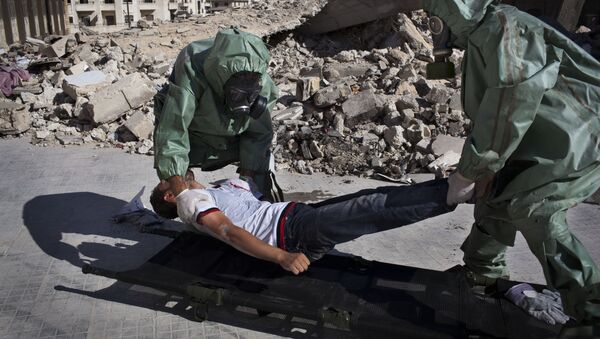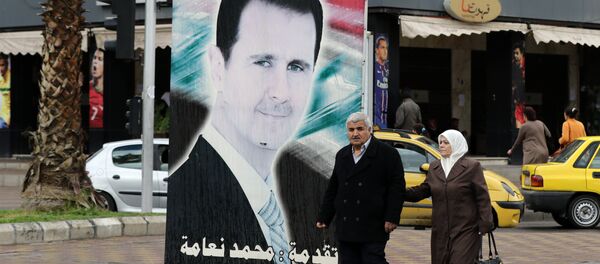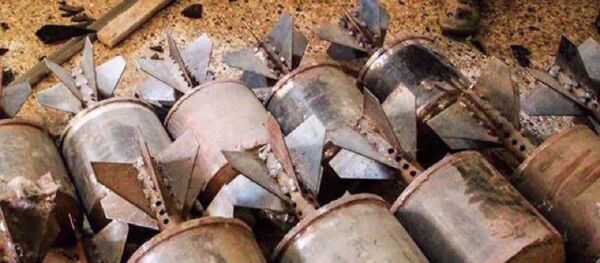MOSCOW (Sputnik) — The HRW's new report states that the Syrian Army used chemical weapons in opposition-controlled areas at least eight times in 2016.
"Such reports, drafted by amateurs, citing data from social networks and stories by unknown anonymous eyewitnesses by phone, destroy the already controversial reputation of Human Rights Watch," ministry spokesman Maj. Gen. Igor Konashenkov told reporters.
He stressed that in case the watchdog really wanted to examine the issue of chemical weapons in Syria, it should have started with mustard gas use by militants in September 2016 in the village of Marat-Um-Haouch.
"This crime has real witnesses, including Russian and foreign journalists, there are real victims with specific names, real weapons with traces of mustard gas and soil samples that were discovered," Konashenkov said.
So far, there has been a number of reports on use of chemical weapons in Syria, putting responsibility for attacks both on Syrian authorities and Islamic State (IS, banned in Russia) terrorist group.
In October 2016, the UN Joint Investigative Mechanism (JIM) on the chemical weapons use in Syria said that the Syrian authorities used chemical weapons at least three times throughout 2014-2015, while an earlier report said the IS was also responsible for several attacks.
Despite lack of conclusive evidence, a number of countries, in particular the United Kingdom, France, and the United States, blamed the Syrian government for the chemical attacks. Syrian President Bashar Assad though denied all accusations, claiming the reports failed to provide conclusive evidence of its culpability and putting blame on the terrorist groups. The Russian authorities have repeatedly called on necessity to double-check such kind of reports, stressing that conclusions cannot be simply made on interviews of several local residents.
Earlier on February, Russia’s Foreign Ministry said it expected more effective work from the OPCW, adding that the organization's act-finding mission in Syria had conducted its activity over the past years remotely by interviewing witnesses, which raised questions over information's credibility.
Since 2011, Syria has been engulfed in a civil war, with government forces fighting against numerous opposition and terrorist groups, including al-Nusra Front and Daesh, banned in a range of countries, including Russia.




